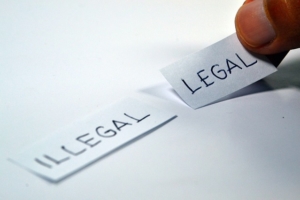Thailand’s laws prohibit foreign nationals from owning land directly. This restriction has led many to explore Thai company ownership in Phuket as a way to hold villas and landed property. But is this structure still safe, and under what conditions is it legal?
This guide explains how Thai company ownership works, the legal requirements, the risks of nominee shareholders, and why a genuine, tax-paying business is essential.
Why Foreigners Consider Thai Company Ownership in Phuket
The main attraction of this method is straightforward: foreigners cannot directly own land in Thailand, but Thai companies can. Historically, some foreigners gained indirect control of villas and land by setting up companies with Thai nominees.
While this approach was common in the past, stricter enforcement has made it increasingly risky.
Thai Company Ownership in Phuket: What the Law Says
Thai law allows a properly established Thai company to own land, provided that:
-
More than 50% of the company’s shares are held by Thai nationals.
-
The company is formed for a legitimate business purpose, not just to hold property.
-
The company is genuinely operated, with proper accounts, audits, tax filings, and documented board meetings.
If the company exists only as a shell for property holding, it may be considered a nominee structure, which is strictly illegal.
For more insight into how nominee arrangements are treated under Thai law, see our detailed guide on Nominee Shareholders and Property Ownership in Thailand.
The Risks of Nominee Shareholders
Nominee shareholders are Thai nationals who hold shares on behalf of foreigners without any real financial involvement. If the Land Office or Ministry of Interior suspects nominee arrangements, they may:
-
Deny registration of the land or villa.
-
Revoke ownership rights, even years later.
-
Impose fines or criminal penalties under the Land Code.
Investigations into company structures have increased, particularly in Phuket, Samui, and Pattaya.
Legal Grey Areas Turning Black and White
For years, Thai company ownership in Phuket existed in a grey zone – tolerated but rarely enforced. Today, authorities are tightening the rules, with increased scrutiny of nominee arrangements and shell companies.
Proposed amendments to the Anti-Money Laundering Act (AMLA) could make nominee shareholder structures explicitly illegal, adding further risk to companies without real operations.
What If the Thai Company Is Genuine?
Not all cases of Thai company ownership in Phuket are problematic. If you operate a legitimate business, such as a restaurant, tour company, or consulting firm, and that business happens to own land, the ownership is valid under Thai law.
However, even in these situations:
-
The company must be run properly under Thai corporate law.
-
Foreigners may only hold up to 49% of shares, except for rare exemptions.
-
Annual accounts, tax filings, audits, and shareholder meetings are required.
-
The company must remain active; you cannot simply register it and “forget about it.”
A genuine, revenue-generating, tax-paying company can legally hold land, but a shell entity created solely for property holding will almost certainly be challenged.
What a Proper Company Must Demonstrate
To avoid being classified as a nominee company, a Thai business must operate legitimately. This means:
-
Generating revenue and paying corporate taxes.
-
Filing annual accounts, undergoing audits, and holding shareholder meetings.
-
Having real expenses, staff, or premises that prove active operations.
-
Ensuring Thai shareholders make genuine contributions and participate in management.
Without these, the company risks being flagged as a sham entity.
For official information on Thai company law and compliance, visit the Department of Business Development (DBD), Thailand.
Villas Held in Companies: Special Risks
Some villas in Phuket are held under company structures. Buyers may be offered a “share transfer,” acquiring the company instead of the property directly.
This carries significant risks:
-
Hidden debts or liabilities could transfer to the new owner.
-
Past tax or compliance failures may resurface.
-
Nominee structures can invalidate the ownership altogether.
Thorough legal due diligence is essential before considering such arrangements.

Safer Alternatives to Thai Company Ownership in Phuket
Foreigners have legal and secure alternatives to landholding through companies, including:
-
Foreign Freehold Condominiums – The simplest and safest option.
-
Leasehold Agreements – 30-year renewable leases, fully registerable at the Land Office.
-
Usufructs or superficies – Long-term use rights over land and buildings.
These approaches avoid the legal grey areas of company structures.
One of the safest alternatives is choosing foreign freehold condos in Phuket, which allow foreigners direct ownership under Thai law and provide long-term security without the risks of complex company structures.
Summary: Thai Company Ownership in Phuket
Thai company ownership in Phuket has been used by some foreign buyers, but it carries strict legal requirements and serious risks if misused. A company must be genuine, with real Thai shareholders exercising actual control; nominee or sham arrangements are illegal. Proposed AMLA reforms are expected to tighten scrutiny of beneficial ownership, expand investigation powers, and increase the risk of asset seizure where structures are found to conceal foreign control. Foreigners should weigh these risks carefully and consider fully legal alternatives such as foreign freehold condominiums or properly structured leaseholds, and always obtain independent legal advice before committing.
FAQ: Thai Company Ownership in Phuket
Q: Can a foreigner use Thai company ownership in Phuket to buy land?
Foreigners sometimes set up companies with Thai shareholders to hold land, but if those shareholders are only nominees, the structure is illegal and can be dismantled by authorities.
Q: Is Thai company ownership in Phuket still common?
It is less common today because of stricter enforcement, particularly with proposed AMLA reforms aimed at transparency and beneficial ownership.
Q: What are the risks of using a Thai company for property ownership?
The biggest risks are loss of ownership rights if the structure is challenged, legal penalties, and potential confiscation of assets.
Q: What are safer alternatives to Thai company ownership in Phuket?
Foreign freehold condominiums and properly registered leasehold agreements are secure, legal, and enforceable alternatives.
Q: Can I buy a villa in Phuket through a Thai company?
Yes, but only under strict conditions. Some villas are marketed through Thai company structures, where the buyer acquires the shares of the company that holds the land. This can be legitimate if the company is a fully operating business, generating revenue, filing accounts, paying taxes, and adhering to all Thai corporate laws. However, if the company is just a shell with nominee shareholders, the structure is illegal and highly risky. Always carry out full due diligence with a reputable lawyer before considering this approach.
Related Guides
Conclusion
The risks surrounding Thai company ownership in Phuket are higher than ever. Without a legitimate business purpose and full compliance, companies used to hold property are vulnerable to investigation and penalties. Safer alternatives such as freehold condominiums, leasehold contracts, and structured use agreements offer more transparency and security.
Thai company ownership can still be valid if the company is a fully legitimate business, generating revenue, paying taxes, and operating under Thai law. But without this, the risks far outweigh the benefits.
Setting up a Thai company for property ownership in Phuket should always be approached with caution. For verified, law-compliant ownership opportunities, see our latest selection of Phuket properties for sale, all vetted to ensure proper structures and foreign-ownership compliance.
Disclaimer: The information contained in this article is provided for general informational purposes only and does not constitute legal, financial, or investment advice. While every effort has been made to ensure accuracy at the time of publication, property laws and regulations in Thailand are subject to change. Readers should always seek independent legal advice from a qualified Thai lawyer before making any property-related decision or transaction.


Social Contact